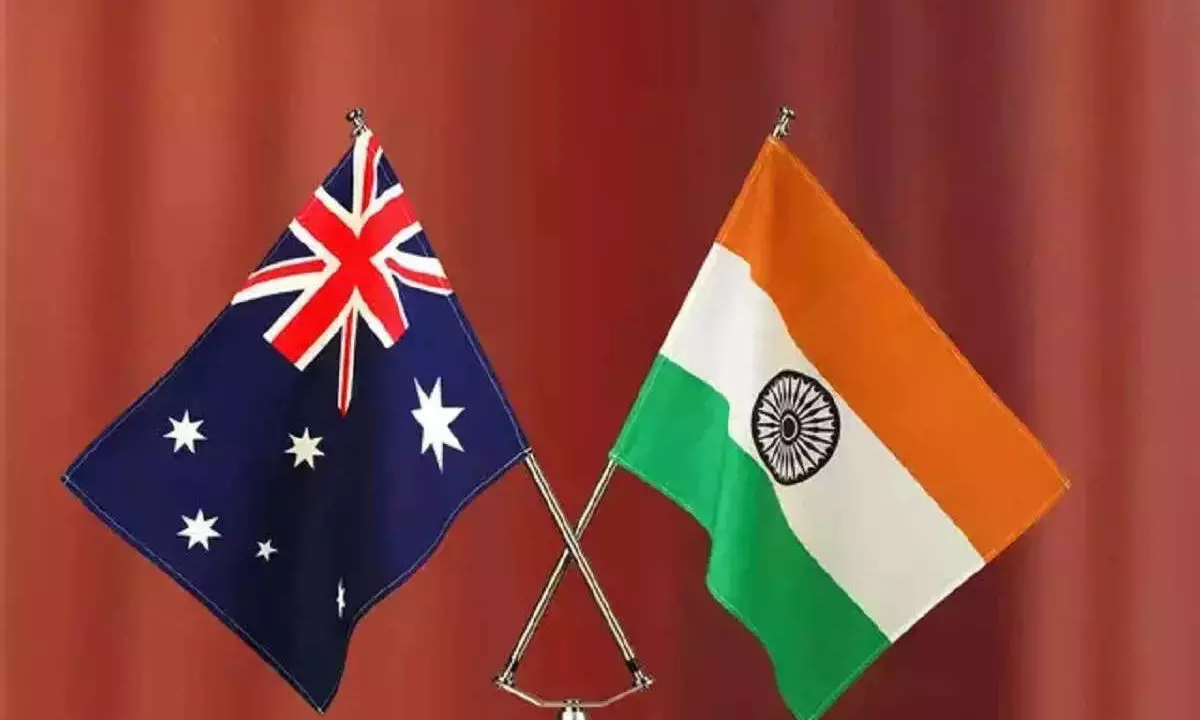India And Australia Expand Bilateral Ties: Comprehensive Talks Cover Digital Trade, MSMEs, And More

- After the success of a preliminary Free Trade Agreement (FTA), India and Australia are deepening their ties through comprehensive discussions.
- The seventh round of talks, concluded in October, includes negotiations on digital trade, MSMEs, traditional knowledge, labor, and sports.
Following the successful conclusion of a preliminary Free Trade Agreement (FTA) last year, India and Australia are now engaging in discussions to further advance their bilateral relations. The seventh round of talks concluded on October 20, with both countries agreeing to pursue negotiations on five tracks and 14 new areas. These areas include digital trade, micro, small and medium enterprises (MSMEs), traditional knowledge, labor, and sports.
The negotiations aim to build on the momentum gained from the preliminary FTA, focusing on comprehensive areas of cooperation. The discussions cover diverse sectors such as digital trade, government procurement, MSMEs, traditional knowledge, sports, gender, environment, innovations, space, labor, and competition policy. The officials involved in the discussions have emphasized the importance of identifying common interests to take the negotiations forward.
While formal talks on tracks such as remaining goods, services, digital trade, government procurement, and product-specific rules of origin (ROO-PSRs) have progressed rapidly, both countries are working towards convergence on areas of mutual interest.
According to official data from the commerce ministry, India's exports to Australia experienced a notable 17% increase to $4.9 billion in the first six months of 2023-24 (April-September), while imports decreased by 24.6% to $8.3 billion. Key Indian exports to Australia include petroleum products, pharmaceuticals, iron and steel products, electrical machinery, and garments. Imports from Australia consist primarily of coal, gold, iron ore, pulses, and minerals, serving as raw materials for domestic industries.
India and Australia previously operationalized the Economic Cooperation and Trade Agreement (ECTA) in December of the preceding year. Following this, the two nations expressed a commitment to pursuing a more comprehensive agreement, known as the Comprehensive Economic Cooperation Agreement (CECA). Talks on expanding the scope of ECTA have been ongoing since February, with the goal of concluding CECA by the end of the current year.
The impact of the FTA between India and Australia is evident, with Australia becoming India's 10th top export destination in April-October 2023, recording exports of $5.48 billion and a year-on-year growth of approximately 16%. The comprehensive FTA is expected to elevate economic ties to a strategic level, with Australia potentially offering assured supplies of critical minerals like lithium and cobalt to India without disruptions. However, challenges remain, including Australia's desire for greater market access in India for its wines and agricultural products.

